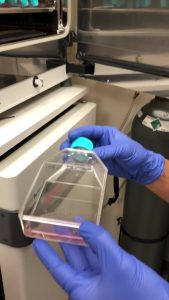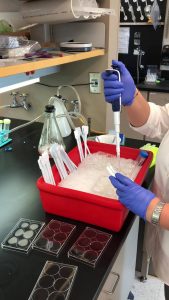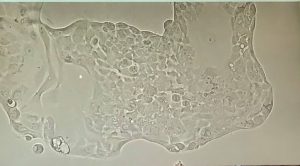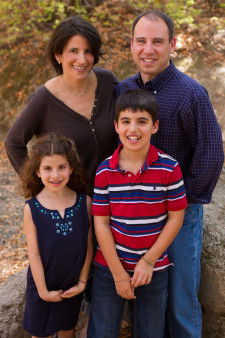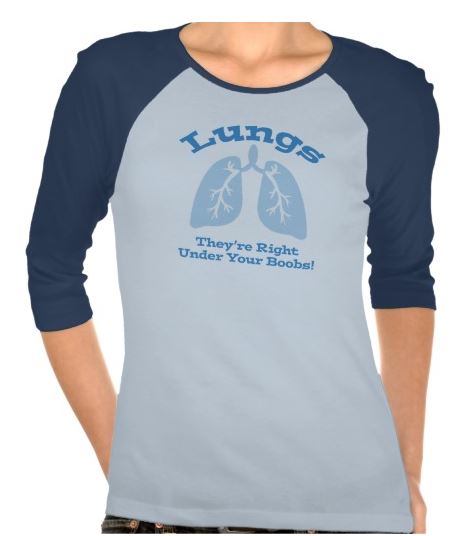The Latest News about the ROS1 Cancer Model Project (Spoiler: it’s Good!)
I am excited to share the latest news about the ROS1 Cancer Model Project. First, a refresher on the project:
- The Problem – ROS1+ cancer occurs in many types of cancers, but it is rare. This makes it difficult for any single research center to collect enough patient samples to study, which in turn suppresses the development of treatment options for this aggressive disease.
- The Proposed Solution – Three years ago, Janet Freeman-Daily, Tori Tomalia and I realized that ROS1+ patients (“ROS1ders”) held the power to accelerate research of their disease in ways no one else could. We set out on an ambitious goal to gather ROS1+ patients and their biospecimens for research.
With the support of the phenomenal Addario Lung Cancer Foundation and ALCMI, and many months of work by a team of dedicated patients, advocates, scientists and industry partners, we launched the groundbreaking ROS1 Cancer Model Project. (You can read more details about collecting ROS1+ biospecimens for this project here.)
And now, onto the News!:
- The Initial Results – While we were thrilled to have launched the project, we held our breath. The chasm between a great idea and effective implementation can sometimes disappoint (I live in the Silicon Valley, and count myself among the thousands of alumni of companies that failed to achieve their potential, sigh).
In this case, I have wonderful news to share. We are pleased to report that our ROS1 Cancer Model Project IS making a difference in ROS1 cancer research! Since January 2017, we have:
–> Received 10 fresh/fluid samples from ROS1der patients
–> Successfully derived 4 cell lines, with 2 more pending (to put this in perspective, this more than doubles the number of ROS1 cell lines that were known to exist in the world prior to this effort)
–> Distributed ROS1 cell lines to multiple industry/academic partners, including UCSF, U. of Utah, Moffitt, CC, McGill U., NIH, and Ignyta/Roche
–> Whole exome sequencing (WES) and RNA sequencing pending on both cell lines and tumor samples
–> Two patients enrolled in, and two specimens received, for implantation into Patient-derived xenografts (PDX) mice
–> Two PDX models in development to be genomically characterized and banked as a resource for research.
A few weeks ago, Janet met with Dr. Doebele at University of Colorado, one of the MD/PhD researchers working on the ROS1 Cancer Model Project. Janet toured Dr. Doebele’s lab and took a few photos:
(Right) This image shows a researcher testing different concentrations of drugs against ROS1+ cell lines which have become resistant to the drug Crizotinib/Xalkori. Crizotinib is the only FDA-approved drug to treat ROS1+ cancer. It has a median effective time of approximately 18 months for ROS1+ patients. Once a patient’s cancer becomes resistant to Crizotinib, they have very few alternative treatment options. This research is a crucial step in developing more treatments for ROS1+ cancers.
- The Future – There are more cell lines and PDX models in the works. We are just getting started and we hope to have more exciting updates to share with you in the future. As Dr. Doebele said at the World Lung Cancer Conference in Toronto last week, “The oncogene-driven patient groups are positioned to make a huge difference in these rare lung cancers; for ROS1-positive cancers, the ROS1 Cancer Model Project is essential for supporting ongoing research into the biology, testing, and drug development for the disease.”
- How You Can Help –
For ROS1ders: The more biospecimens we patients donate, the better the research will be for all of us. We only accept donations of excess material collected in the normal course of a patient’s treatment, and which the patient does not otherwise need for their own care. To learn more about how you can contribute your tissue or pleural fluid to make more ROS1+ cancer models, call Nurse Alicia toll free at 866-988-ROS1 (866-988-7671).
For ROS1der supporters: We’ve been so focused on the logistics of launching this project, we are woefully behind on fundraising. If you’d like to help fund this research, please donate at https://www.supportalcf.org/ros1.
THANK YOU!
